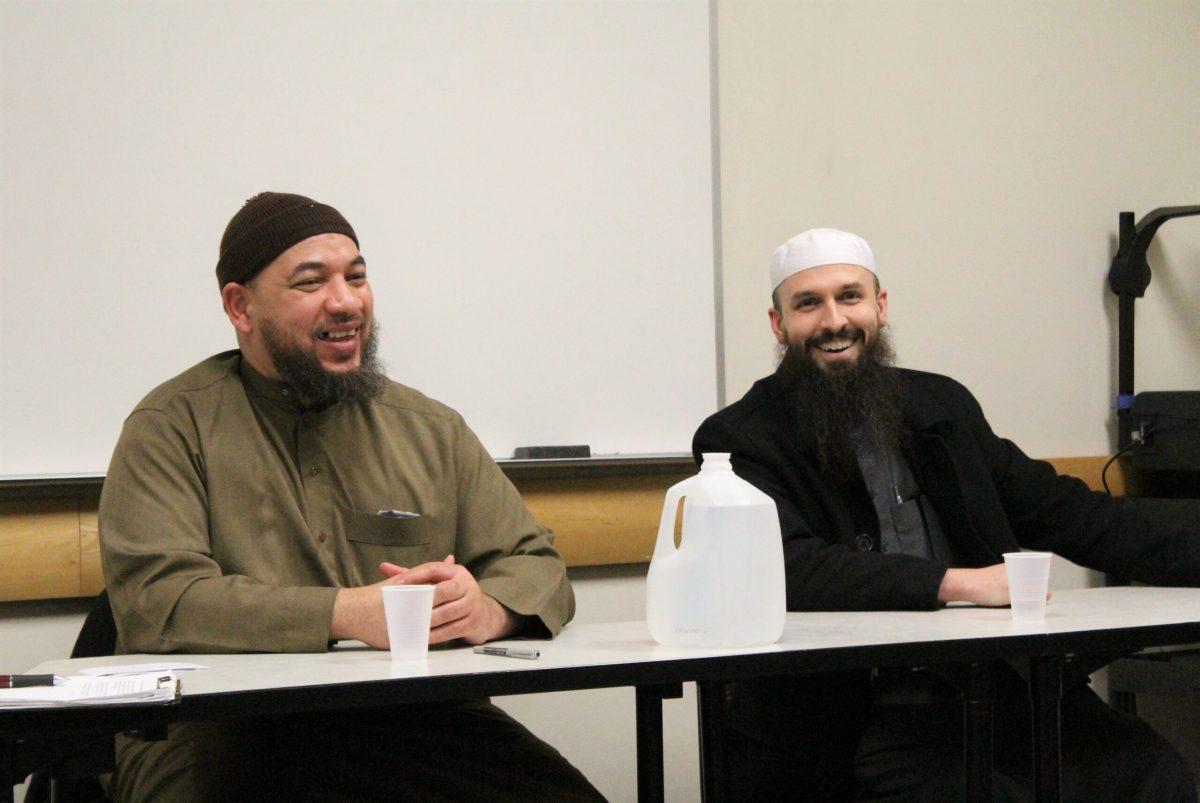The Muslim Student Association (MSA) held a talk about Islamophobia to discuss the genuine nature of the Islamic religion and dismiss its stereotypes due to radical groups.
The event was held on Wednesday, Feb. 17 in James Hall, and featured a question and answer session with Imam John Starling and Imam Sami Faheem. An imam is an Islamic leader, most commonly a leader of a place of worship such as a mosque or Muslim community. Both speakers were contacted by the MSA to speak about the religion of Islam while Dr. Kenzo Sung, a professor in the education department, moderated the session.
Faheem is the Director of the Quba School and Islamic Center in Camden, and Starling is the Director of the Gracious Center of Learning and Enrichment Activities (GCLEA) for the Muslim community of Southern New Jersey, located in Cherry Hill.
Islamophobia is defined as a dislike or prejudice against Islam and its followers, which can lead to discrimination. In keeping with the title, one topic discussed included how terrorist organizations such as ISIS and al-Qaeda have left people uncertain and fearful when it comes to Islam.
“There are many reasons we are experiencing this heightened, or irrational, fear of Muslims,” Starling said. “And one of those is that it’s an election year. These are the types of things that boost their numbers in the polls.”
Starling mentioned that campaigns tend to run off of emotion, rather than full-fledged fact; it’s easier to just blame a scapegoat than to look at a problem from all sides.
Another issue addressed was over-generalizing about Muslims. They make up roughly 23 percent of the world’s population, totaling 1.6 billion individuals, according to the Pew Research Center. Of that number, only a small portion are members of radical organizations, making it dangerous to assume that everyone who is Muslim is associated with violence.
The discussion session is MSA’s main event of the year and took nearly two months to plan. About 40 people attended, making it possible for the club to hit its goal of reaching maximum room capacity for the evening.
“Even though we didn’t have a crowd of a hundred people or anything like that, we did reach enough that I think they will be able to carry our message on to other people,” Senator of MSA Naveen Khan said. “Most people believe that ISIS is a representation of Islam because they don’t know what Islam is really like. This [event] is a chance to get them that knowledge.”
Some students, however, thought more could have been discussed at the event.
“I wanted to ask more serious questions about Islamophobia,” junior business administration major Eric Barbera said. “Too many people believe the harsh depiction of Muslims in the media. It just didn’t really seem like they were touching on that as much as I had hoped.”
For comments/questions about this story, email [email protected] or tweet @thewhitfeatures.























































































































































!["Working with [Dr. Lynch] is always a learning experience for me. She is a treasure,” said Thomas. - Staff Writer / Kacie Scibilia](https://thewhitonline.com/wp-content/uploads/2025/04/choir-1-1200x694.jpg)











































fahlito • Apr 21, 2016 at 5:18 am
“I wanted to ask more serious questions about Islamophobia,” junior business administration major Eric Barbera said.”
Well, why didn’t you? As far as the harsh depiction of Muslims in the media, then I think that Muslims should not be made to feel responsible for media manipulation and propaganda. We did mention that part of that being offset is by people like Mr. Barbera being bold enough to engage actual Muslims to learn what Islam is, as opposed to getting it from the Manipulative Exploitation Device Inciting Aggression.